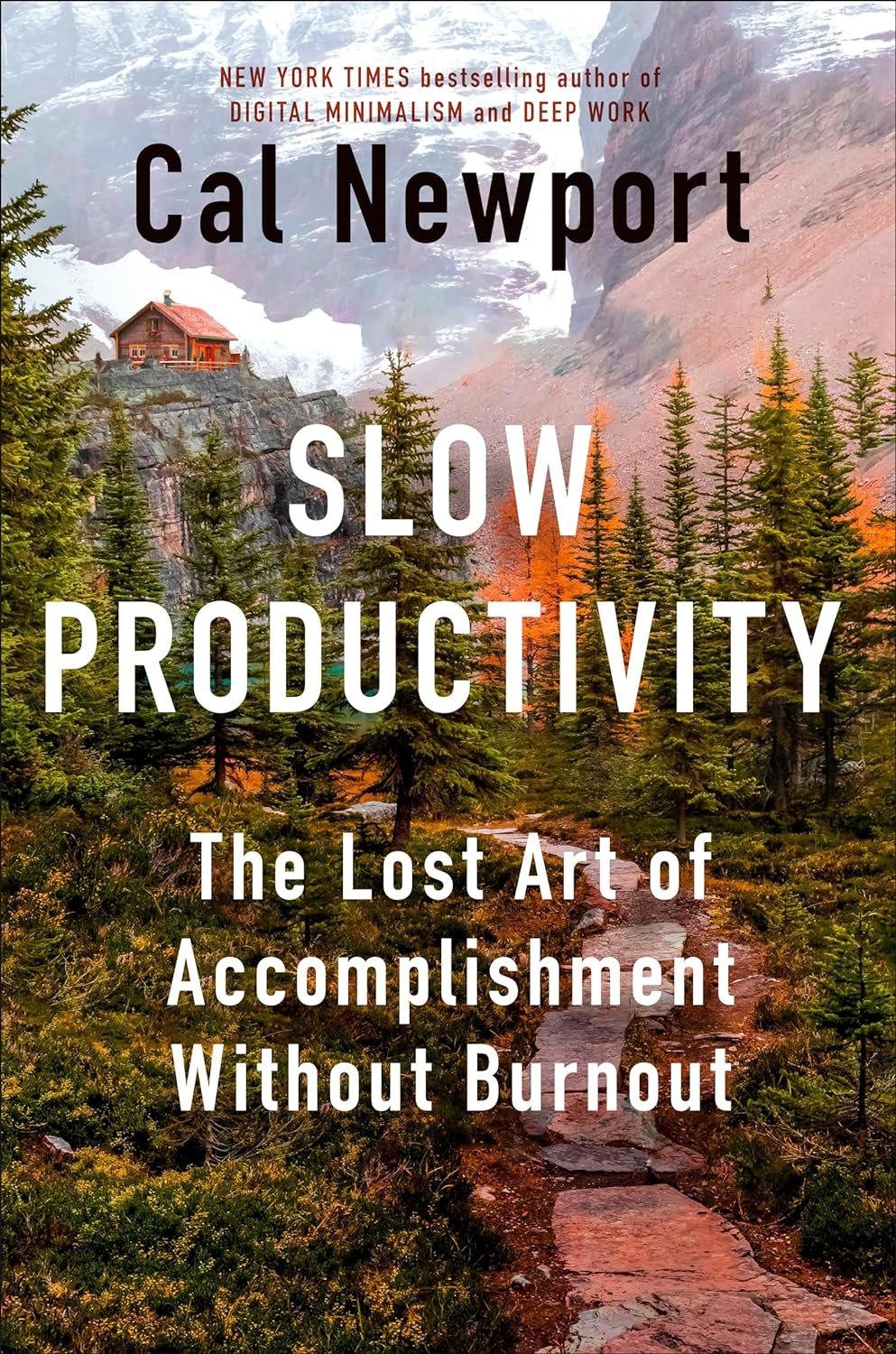Slow Productivity: The Lost Art of Accomplishment Without Burnout
Cal Newport
Redefining Productivity in the Age of Overload: A Review of “Slow Productivity” by Cal Newport
Cal Newport, author of the acclaimed books “Deep Work” and “Digital Minimalism,” dives into the realm of productivity once again with “Slow Productivity.” This timely book challenges the conventional definition of productivity, arguing for a more deliberate and sustainable approach in an era of constant busyness and information overload.
Strengths:
- Counterintuitive But Compelling Argument: Newport argues that the constant pursuit of “getting more done” can be counterproductive, leading to burnout and hindering the quality of work. He proposes a slower, more intentional approach that prioritizes quality over quantity, allowing for deeper focus, strategic rest, and a renewed sense of purpose in one’s work.
- Emphasis on Long-Term Quality: The book shifts the focus from short-term output metrics to long-term value creation. Newport emphasizes the importance of cultivating mastery and investing time in activities that yield long-lasting results, rather than striving for constant activity and immediate gratification.
- Practical Strategies and Frameworks: Newport doesn’t just propose a new philosophy; he provides actionable strategies and frameworks to help readers implement “Slow Productivity” in their lives. These strategies include managing energy levels according to the seasons, identifying and prioritizing projects, and building a schedule that maximizes output with minimal stress.
Considerations:
- Potential for Misinterpretation: While the book advocates for a slower pace, it doesn’t endorse laziness or procrastination. It’s crucial to understand the distinction between mindful slowness and unproductive idleness.
- Limited Scope: The book primarily focuses on individual productivity strategies and might not adequately address the systemic issues contributing to our “always-on” culture, such as workplace demands and societal expectations.
- Applicability Across Different Professions: While the core principles are valuable, the specific strategies might not be equally applicable to all professions and individuals with varying work styles and workloads.
Overall: “Slow Productivity” is a thought-provoking and timely read that challenges the reader to re-evaluate their relationship with work and productivity. It offers a compelling alternative to the hustle culture prevalent in today’s society, advocating for a more intentional and sustainable approach to achieving meaningful results. While not a one-size-fits-all solution, Newport’s framework provides valuable tools and insights for anyone seeking to escape the cycle of overload and achieve meaningful accomplishment with less stress and a renewed sense of purpose.
Recommendation: Highly recommended for individuals feeling overwhelmed by the pressure to constantly be productive, those seeking a more balanced and sustainable approach to work, and anyone interested in exploring alternative productivity philosophies. Be prepared to challenge your pre-existing notions of productivity and be open to adapting the strategies to your specific needs and circumstances.

